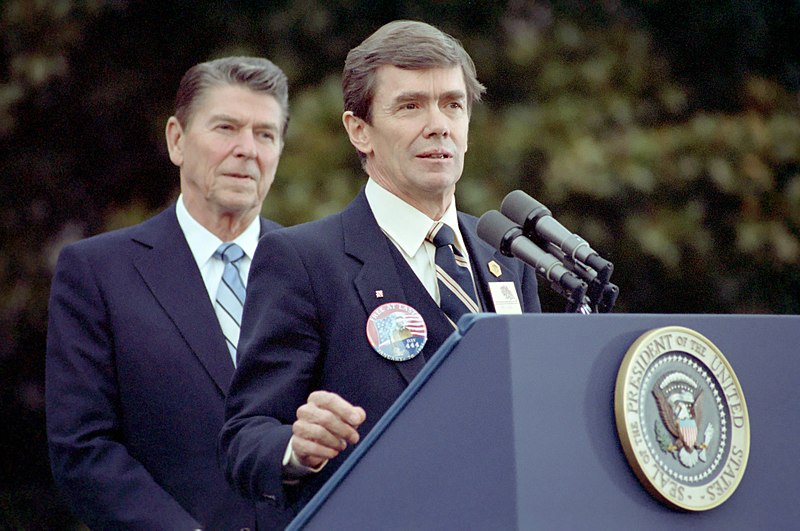July 19, 2019

Bruce Laingen, the senior US diplomat held hostage in Iran for 444 days in 1979-81, died July 15. He was 96.
“He was a big-shot diplomat, but he was always more comfortable being on the farm, baling hay in a place where no one made a fuss about you,” Laingen’s son, Chip, told the Minneapolis Star-Tribune. “He wanted to embrace where he came from and the people who meant the most to him.”
Laingen lived most of his adult life in Bethesda, Maryland, or abroad on his diplomatic postings. He died in an assisted living facility in Bethesda of complications from Parkinson’s disease.
Memorial services will be held later this summer in his hometown of Odin, about 125 miles southwest of Minneapolis.
As a Foreign Service officer for 37 years, Laingen first served in the US consulate in Mashhad in the 1950s. Then in June 1979, he returned to Iran when President Jimmy Carter appointed him US charge d’affaires and directed him to tell officers of the revolutionary government that the Carter Administration accepted the revolution as fact and was prepared to deal with the new government. The regime has never told the Iranian people that.
Months before the embassy takeover and amid rising tensions, Laingen warned US officials not to allow Iran’s deposed Shah to enter the United States for medical treatment.
“When President Jimmy Carter authorized that, it was the final straw for the radical students who believed the US was really the devil,” said Laingen’s son.
After retiring from the Foreign Service, Laingen led the American Academy for Diplomacy, an organization promoting the use of diplomacy, and wrote some articles on Iran for the Iran Times. He never publicly expressed any anger with the revolutionary government in Tehran, though his frustration was obvious. He often said he had expected the revolutionary government to moderate and rejoin the international system long ago.
While most of the hostages were held in the embassy, Laingen and two others were held captive in the Iranian Foreign Ministry, where they were when the embassy was seized.
As the crisis wound down, Laingen was brought to the embassy for the last 44 days and kept in solitary confinement, his son said.
On their return to the US, the hostages received a heroes’ welcome, leaving Laingen uncomfortable with the attention. Captive in Iran, he had no idea it had become a major news story back home. “He was overwhelmed because he’s such a humble person,” his son said.
After the crisis ended, Laingen was long driven to repair relations between Iran and the United States, his son said. He was frustrated that it never changed and only seemed to get worse. Even so, his father remained optimistic, believing there was always a reason to be hopeful.
“I grew up in the dust-storm days of the ’20s and ’30s in Minnesota,” Bruce Laingen said in a 2009 interview with the Star Tribune. “You need a lot of optimism to cope with that situation. You have to be an optimist to farm in southern Minnesota even today.”
Even after being held hostage, Laingen held a deep respect and love for the Iranian people and their culture. “He always said there was much more in common between the US and Iran, but that it was hijacked by militant Islam,” Chip Laingen said.
Laingen had traveled the world, serving in the South Pacific as a Navy officer during World War II and in Foreign Service at posts in Germany, Pakistan and Afghanistan. President Gerald Ford appointed him US ambassador to Malta in 1977.
“He went from a simple, simple life where you got up, you tended crops, you work your tail off … and you go to church on Sunday,” his son said. “He wanted to be in the game, but I think he knew he could always come home to the farm, the simplicity, the peace.”
Looking back at the hostage crisis 25 years later, Laingen told the AP in 2004 that it didn’t make sense for the US to have little dialogue with Iran given the American stake in the Middle East.
“We need to understand Iran, and Iran needs to seek to understand us,” he said.
Laingen is also survived by his wife, Penelope, and two other sons.